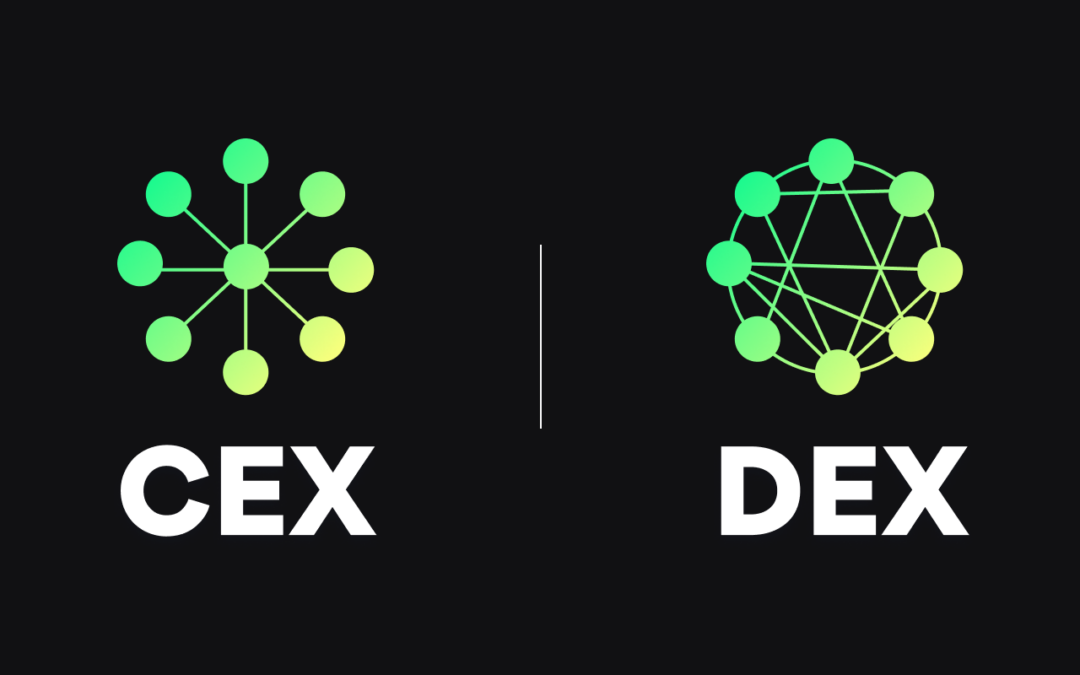How Do Decentralized Exchanges (DEX) Differ from Centralized Exchanges (CEX)?
When it comes to trading cryptocurrencies, you’ve probably encountered two main options: decentralized exchanges (DEX) and centralized exchanges (CEX). If you’re new to the crypto world or trying to decide which type of exchange is best for you, understanding the differences between these two is crucial. In this post, we’ll break down the key distinctions between DEX and CEX, and help you make an informed decision on where to trade.
Control and Custody of Funds
One of the fundamental differences between DEX and CEX lies in who controls your funds.
Centralized Exchanges (CEX)
When you use a CEX like Binance, Coinbase, or Kraken, you’re entrusting your funds to the exchange. They act as a middleman, holding your assets in their wallets until you decide to trade, withdraw, or sell. This means the exchange has full custody of your funds, and you’re reliant on them to keep your assets safe. While most major CEXs have robust security measures, hacks do happen, and if the exchange gets compromised, your assets could be at risk.
Decentralized Exchanges (DEX)
On the other hand, DEXs like Uniswap, PancakeSwap, or SushiSwap allow you to trade directly from your wallet. There is no middleman; you remain in full control of your assets throughout the entire trading process. This is made possible through smart contracts that automatically facilitate the exchange of cryptocurrencies. As a result, DEXs are considered more secure in terms of custodianship since there is no centralized entity holding your funds.
Regulation and Compliance
The regulatory environment is another key differentiator.
CEX
Centralized exchanges operate like traditional financial institutions. They are typically required to comply with strict regulations, including Know Your Customer (KYC) and Anti-Money Laundering (AML) laws. This means you’ll often need to provide personal identification, such as a passport or driver’s license, when signing up. While this adds a layer of security and trust, it also means less privacy for users.
DEX
Decentralized exchanges are generally unregulated and do not require KYC or AML procedures. This is because they do not hold or process funds in the same way a centralized exchange does. Users can trade anonymously, which can be a big advantage for those who value privacy. However, the lack of regulation also means there’s little to no recourse if something goes wrong—there are no customer support lines or governing bodies to turn to if you fall victim to fraud.
Liquidity and Speed
Liquidity and the speed of transactions are crucial for any trader, and this is another area where DEX and CEX differ.
CEX
Centralized exchanges usually offer higher liquidity because they aggregate the funds of millions of users. This allows for quicker trades and less price slippage (when the price moves during a trade execution). They often match buyers and sellers through a traditional order book system, making it easier to get your trades filled at the price you want. Additionally, CEXs are generally faster because they don’t rely on the blockchain for every transaction—most trades happen off-chain within the exchange’s internal system.
DEX
Decentralized exchanges, by contrast, may have lower liquidity, especially for less popular tokens. This can lead to higher price slippage and slower transactions, particularly during times of high network congestion. Since all trades happen on-chain, they depend on the speed of the underlying blockchain. However, thanks to innovations like Automated Market Makers (AMMs), some popular DEXs have improved liquidity and trading efficiency.
Fees
Fees are always something to consider, especially if you’re an active trader.
CEX
Centralized exchanges typically charge fees for every trade. These fees can be fixed or based on a percentage of the transaction amount. CEXs also often charge withdrawal fees if you want to move your assets off the exchange. The upside is that CEXs can sometimes offer reduced fees for high-volume traders or users who hold the exchange’s native token (like Binance’s BNB).
DEX
Decentralized exchanges tend to have fewer trading fees, but you will need to pay network fees (also known as gas fees) for every transaction. These fees can fluctuate depending on the blockchain’s traffic. For example, during periods of high demand on Ethereum, gas fees can spike, making trading on DEXs more expensive. However, on less congested blockchains like Binance Smart Chain or Polygon, gas fees tend to be much lower.
Security
Security is a top concern in the world of crypto, and both types of exchanges come with their own set of risks.
CEX
Centralized exchanges are targets for hackers because they hold vast amounts of user funds. While top-tier CEXs invest heavily in security measures like two-factor authentication (2FA) and insurance policies, the risk of a large-scale hack remains. Additionally, users on CEXs are vulnerable to phishing attacks, as hackers may target login credentials.
DEX
Since decentralized exchanges don’t hold your assets, they’re inherently less vulnerable to large-scale hacks. However, they are not risk-free. DEXs operate on smart contracts, and if there’s a bug or vulnerability in the code, it could be exploited. That said, reputable DEXs undergo audits to ensure their contracts are secure, but the risk of “rug pulls” or malicious tokens still exists.
Conclusion: Which One Should You Use?
Choosing between a DEX and a CEX depends on your individual needs and preferences. If you prioritize ease of use, high liquidity, and customer support, a centralized exchange may be the better option for you. On the other hand, if you value privacy, control over your assets, and avoiding regulatory hurdles, a decentralized exchange might be a better fit.
Each type of exchange has its pros and cons, so many traders choose to use both depending on their goals. By understanding the differences, you can make smarter, more informed decisions when navigating the ever-evolving world of cryptocurrency.
Happy trading!

